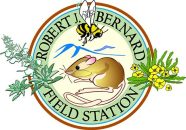Covington, Sarah (2002)
The Effects of Sugar on the Foraging Activity of the Invasive Argentine Ant (Linepithema humile).
Bachelor of Arts, Pitzer College, Biology.
Advisor: Cheryl Baudini.
Argentine ants have successfully invaded Mediterranean climates throughout the world. The success of these ants is attributed to a variety of factors associated with the characteristics of the species, such as the reliance on sugars as a primary food source, enabling them to maintain high rates of foraging activity; a social organization that permits multiple queens; and a polydomous colony arrangement with high mobility and lack of intraspecific aggression. This study was designed to look at the effects and importance of sugars in the diet of the Argentine ants through bait preference experiments and observation of foraging activity. The results indicate that not only was there a significantly greater number of ants recruited to a 25% sugar water bait than to a protein or water bait, but there was also a significantly greater number of ants recruited to a 50% sugar water bait than to a 25% sugar water bait. However, there was no significant difference in the time required to recruit workers to a bait among colonies fed and maintained on varying diet regimes. In conclusion, it is clear that sugars are preferred by Argentine ants and that this reliance on sugars may contribute significantly to recruitment, colonization, and the success as an invasive species.
